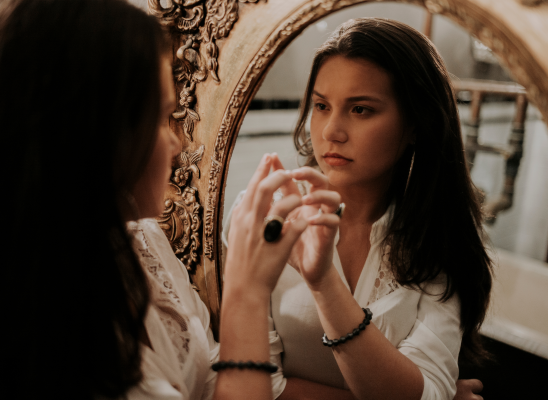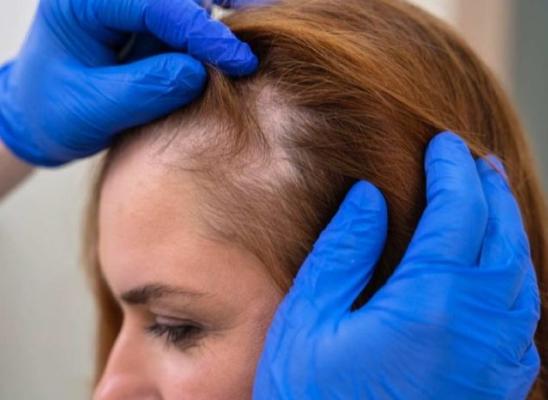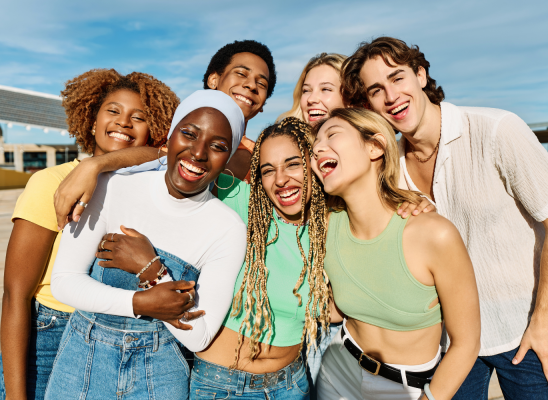The Transformative Power of Peer Support in Overcoming Trichotillomania

Online test
Find out the severity of your symptoms with this free online test
When it comes to navigating life, there’s a lyric from a Beatles song that always comes to mind: “I get by with a little help from my friends.” And there’s truth in those words. Having a community of supportive family, friends, and peers can be a lifeline and a source of strength and resiliency.
For those living with trichotillomania, often referred to as hair pulling disorder or “trich”, finding support and community can be hard to come by. Trichotillomania can have a significant impact on self-esteem, quality of life, and overall well-being. People living trich and other body-focused repetitive behaviors like skin picking report struggling with feelings of isolation and shame, and difficulties in finding support and resources. There is a fear of being judged by others. They often go to great lengths to cover up the damage or avoid social situations where someone may call attention to their hair, making the journey to recovery feel even more isolating and overwhelming.
However, the importance of peer support cannot be overstated. Having a community of peers has consistently been shown to provide positive benefits for people with shared experiences. Connecting with others who share similar experiences can provide a source of understanding, empathy, and encouragement, empowering each other to navigate challenges and achieve lasting recovery.
Trich and Making Connections: It’s Complicated
The very nature of trichotillomania can make finding support challenging. Trichotillomania is a complex mental health condition characterized by repetitive hair pulling, resulting in significant hair loss. But the hair loss is not its only impact. People living with trich also experience significant emotional distress and impaired psychosocial functioning which can further complicate seeking support. The hair pulling is thought to serve as a coping mechanism for underlying emotional distress or anxiety, creating a cycle of shame and guilt.
Many people struggle in silence, feeling ashamed or embarrassed to discuss their condition with others. Support is very much desired but the fear of being judged can keep people from reaching out. Despite the prevalence of trichotillomania, there remains a stigma surrounding mental health disorders, further exacerbating feelings of isolation and alienation.
The Power of Peer Support: Finding Connection and Understanding
Finding a community of supportive peers offers a beacon of hope and understanding. Connecting with others who share experiences similar to yours can provide a sense of validation and belonging, dispelling feelings of isolation and shame.
Supportive communities can take different forms. Support groups, online forums, or social networks, can all offer a safe space for connecting with others, sharing struggles, fears, and triumphs without judgment, and even sharing resources and strategies.
One of the unique benefits of a supportive peer community is the shared understanding that comes from interacting with others who are on the same journey. They’ve walked in your shoes. They’ve been where you are. While friends or family may be aware of your trich and understand it on an informational level, they may struggle to understand the experience of living with trich because quite simply, they haven’t lived it. People who have firsthand experience with the disorder can offer unique insights and empathy. They understand the nuances and day-to-day challenges - the overwhelming urges, the feelings of shame, the relentless cycle of pulling - and can offer guidance and support from a place of genuine empathy and firsthand experience.
Supportive peers can bolster self-confidence and self-esteem and be a source of encouragement and motivation. There is hope in hearing the stories of progress and resilience and progress of others. The community is a place to celebrate small victories, find or offer words of encouragement during setbacks.
Peer support is also a source for practical strategies and coping mechanisms for managing trichotillomania. Members of peer groups tend to be at different stages in their journey. Some will be well-versed in effective strategies while others will need their wisdom and guidance. Through shared experiences and collective wisdom, peers can learn new techniques for resisting the urge to pull, coping with triggers, and cultivating self-care practices. Discussions of topics such as mindfulness, stress management, and behavior strategies are common, empowering individuals to take control of their own journey to recovery. Peer groups can also be a source of finding effective treatment resources and recommendations for BFRB-informed therapists.
One of its most powerful impacts, peer support cultivates a sense of empowerment and advocacy in its members. As people gain confidence in sharing their stories and supporting others, they become agents of change within their communities. Whether through community events or simply having conversations with healthcare providers and others, they raise awareness about trichotillomania, challenge the stigma surrounding trich and other mental health disorders, and advocate for greater access to resources and support services. It can create a ripple effect of compassion and understanding that extends far beyond the group.
Finding Your Community
Whether you are more comfortable connecting in person or online, chances are you can find a supportive peer community. A good place to start is your local mental health clinic or hospital. Many community agencies host peer support groups.
For online communities, you can look to the various popular online forums or trich resources. For example, the TLC Foundation for Body-Focused Repetitive Behaviors has an online search option for finding peer-led support groups. You can search by format (in-person or online) or by location.
What if you can’t find a peer group? No worries. You can be the change your community needs. The TLC Foundation for BFRBs offers a guide for starting a peer-led support group.
The Takeaway
Trying to deal with trich alone is challenging. Connecting with a community of peers gives you a safe space to share experiences, gain practical insights, and cultivate a sense of belonging. Connection and community can be the bridge to insight, empowerment, and healing.
References
1. Anderson, S., Clarke, V., & Thomas, Z. (2022). The problem with picking: Permittance, escape and shame in problematic skin picking. Psychology and Psychotherapy: Theory, Research and Practice, 96(1), 83-100. https://bpspsychub.onlinelibrary.wiley.com/doi/10.1111/papt.12427
2. Shalaby, R. A. H., & Agyapong, V. I. O. (2020). Peer Support in Mental Health: Literature Review. JMIR mental health, 7(6), e15572. https://doi.org/10.2196/15572
3. Franklin, M. E., Zagrabbe, K., & Benavides, K. L. (2011). Trichotillomania and its treatment: a review and recommendations. Expert review of neurotherapeutics, 11(8), 1165–1174. https://doi.org/10.1586/ern.11.93
4.TLC Foundation for Body-Focused Repetitive Behaviors. (n.d.) https://www.bfrb.org/find-support/support-groups
5. TLC Foundation for Body-Focused Repetitive Behaviors. (n.d.) https://www.bfrb.org/resources/quick-start-guide-to-starting-maintaining-a-peer-support-group
Online test
Find out the severity of your symptoms with this free online test
Start your journey with TrichStop
Take control of your life and find freedom from hair pulling through professional therapy and evidence-based behavioral techniques.
Start Now



